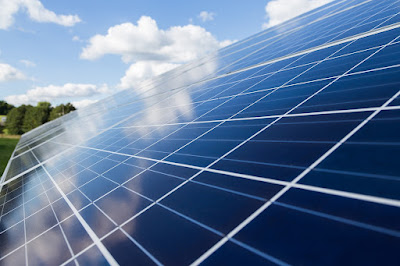Harnessing the Power of the Sun: A Comprehensive Guide to Solar Power Systems
Introduction: Solar power systems have revolutionized the way we harness energy, offering a sustainable and eco-friendly alternative to traditional sources of electricity. Whether you're looking to reduce your carbon footprint, lower your energy bills, or gain energy independence, a solar power system can be a smart investment for your home or business. In this guide, we'll explore the components of a solar power system, how they work, and the benefits of going solar.
Understanding Solar Power Systems: A solar power system consists of several key components that work together to convert sunlight into electricity:
Solar Panels: Solar panels, also known as photovoltaic (PV) panels, are made up of solar cells that convert sunlight into electricity through the photovoltaic effect.
Inverter: The inverter converts the direct current (DC) electricity generated by the solar panels into alternating current (AC) electricity, which is used to power household appliances and electronics.
Racking and Mounting: Racking and mounting systems are used to securely install solar panels on rooftops or ground-mounted systems, ensuring they are positioned to capture the maximum amount of sunlight.
Monitoring System: A monitoring system allows you to track the performance of your solar power system, including energy production and consumption, to optimize its efficiency.
How Solar Power Systems Work:
- Solar panels capture sunlight and convert it into DC electricity.
- The inverter converts the DC electricity into AC electricity, which is used to power your home or business.
- Any excess electricity generated by the system is either stored in a battery storage system or fed back into the grid through a process called net metering.
- During periods of low sunlight or high electricity demand, you can draw electricity from the grid as needed.
Benefits of Solar Power Systems:
- Cost Savings: By generating your own electricity, you can reduce or eliminate your monthly electricity bills.
- Environmental Impact: Solar power is a clean, renewable energy source that produces no greenhouse gas emissions, helping to reduce your carbon footprint.
- Energy Independence: With a solar power system, you can generate your own electricity, reducing your reliance on the grid and fluctuating electricity prices.
- Government Incentives: Many governments offer incentives, such as tax credits or rebates, to encourage the adoption of solar power systems.
Conclusion: Solar power systems offer a sustainable and cost-effective way to generate electricity for your home or business. By understanding how solar power systems work and the benefits they offer, you can make an informed decision about whether solar power is right for you. Whether you're looking to save money, reduce your environmental impact, or gain energy independence, a solar power system can be a valuable investment for the future.



Comments
Post a Comment